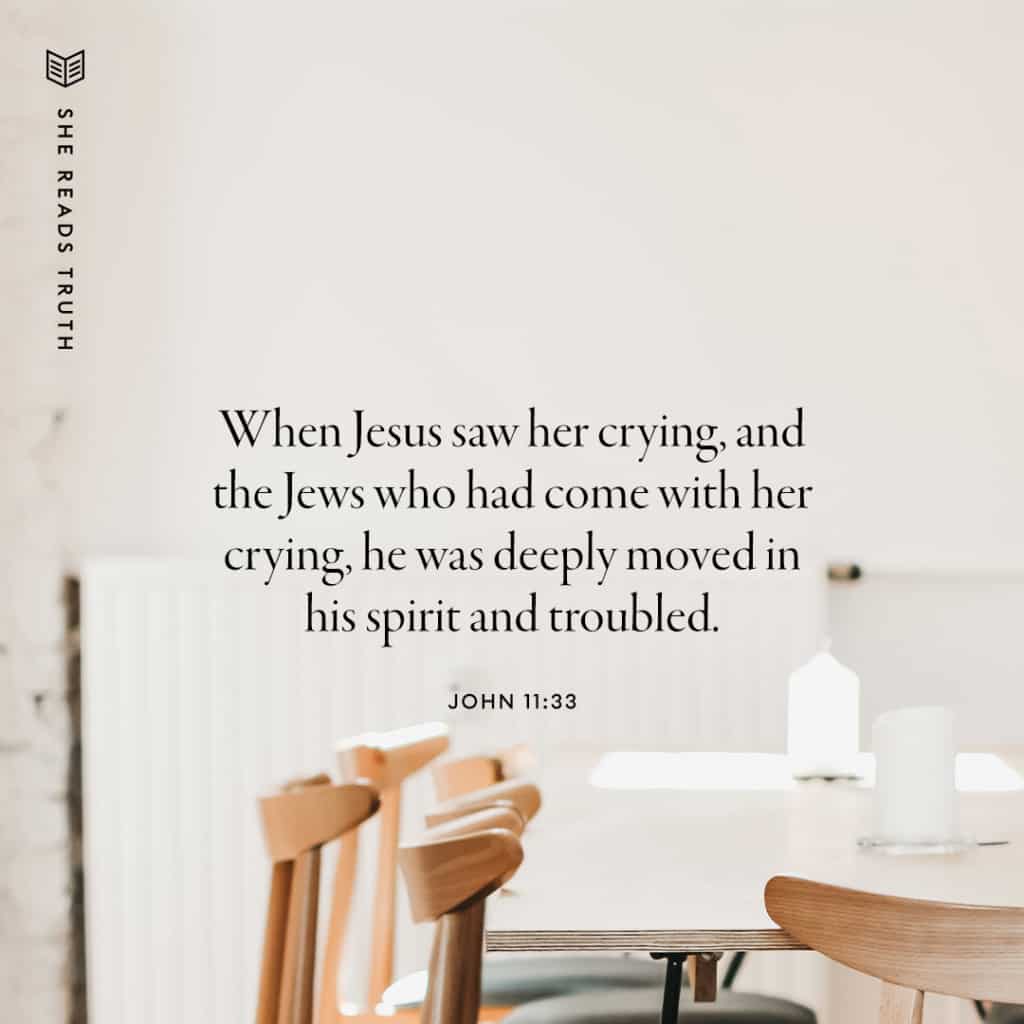Lament
Open Your Bible
Psalm 71:9-24, Mark 15:33-34, John 11:1-44, Romans 12:15
BY Patti Sauls
The path became holy ground. As we wound our way through the sunlit woods, our conversation turned to the upcoming anniversary of her beloved boy’s death. Pain and dread cut through my friend like a knife. Words stuck in her throat and tears fell as she doubled over in grief. I stopped beside her and placed my hand on her back, yearning to bring comfort where no comfort could be found. There we stood in the middle of the path, undone before the Lord and each other. It seemed only the trees stood sentinel with us, our hearts crying out, “God, where are you? We can’t bear this pain! Why have you forsaken us?”
Can we really talk to God like this? Can we dare to call such questioning “holy”? I know I only dare enter this space of protest because He welcomes lament. And God doesn’t merely allow such soul-wrenching wrestling—He invites it.
Lament—the practice of bringing our struggles, mourning, and sorrow to God—is good and right. Scripture instructs us to “pour out [our] hearts before Him” (Psalm 62:8). In fact, over a third of the psalms are songs of sorrow and lament. Even Jesus, knowing that He would bring Lazarus back to life, was deeply troubled and openly wept over death (John 11:33–36).
We are not alone as we carry the weight of sadness, anger, disappointment, anxiety, and fear. All creation joins us as we groan for God to heal and restore every person, place, and thing (Romans 8:22). In lament, God offers us a release-valve as we actively express our emotions. We can pour out our pain to Him both personally and communally alongside others.
God invites us to echo the psalmists as we sing sorrow’s songs, and to honestly express our doubts and distress (see Psalm 13, 22, and 42). Yet, we often decline His invitation to lament, and the pressure of pain and anguish builds. Why do we resist? Maybe we feel guilty questioning God and think it’s sinful to admit struggle. Maybe we assume that acceptable faith should always appear positive and unshakeable. Or, maybe we equate being close to God with mountaintop experiences full of praise and celebration.
Let’s be clear: expressing both praise and pain to God is worship. Whether we are joyfully raising our hands or sorrowfully turning our tear-streaked faces toward Him, we are seeking God and engaging in genuine relationship with our Creator. As we lament, as we grieve, Jesus stands with us as the one who has wrestled with and beaten death itself. He gives the comfort of His presence that soothes, restores, and brings us back to life.

131 thoughts on "Lament"
-
Oh Susan…I’m praying for peace for you. Also, that God would draw you near and into his lap to hold you tight. ❤️
-
Oh Susan…I’m praying for peace for you. Also, that God would draw you near and into his lap to hold you tight.
-
There is nothing pointless. God makes something out of everything whether it be what you want or something you never even thought of. Trust ♥️
-
I find lament difficult. I am in pain every day and my life has changed to the point where I know I will not have a relationship again. I guess I find it pointless to turn this over to God. It won’t change it so it will only make me angry.
-
♥️
-
This helped me see expressing the hard things to God as praise and connection. I’m so grateful.
-
What a beautiful friend we have in Jesus!
-
Thank you God, that you are good and your love endures forever.



Post Comments (131)